Guinea pigs are adorable and popular pets that require proper care and attention to stay healthy. As responsible pet owners, it is important to understand the needs of our furry friends, including their dietary requirements. One common question that many guinea pig owners have is: how long can a guinea pig go without food? In this article, we will explore the answer to this question and provide helpful tips on what to do if your guinea pig is not eating.
Seemore: Can Guinea Pigs Eat Asparagus? – A Complete Guide
Contents
The Importance of Food for Guinea Pigs
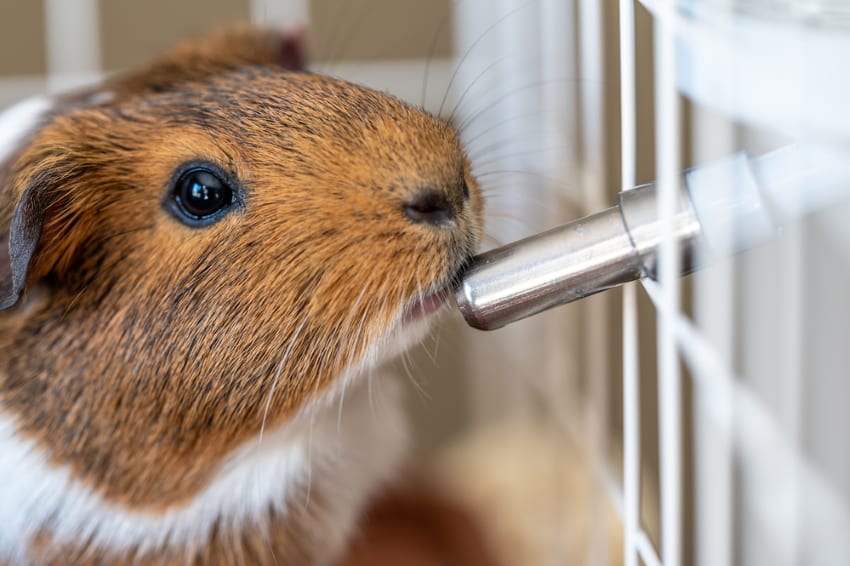
Before delving into the topic of how long a guinea pig can go without food, it is crucial to understand why food is essential for these small animals. In the wild, guinea pigs are herbivores and spend most of their day grazing on grasses and other plants. This constant supply of food is necessary for their digestive system to function properly and maintain their overall health.
As pets, guinea pigs rely on their owners to provide them with a balanced and nutritious diet. A lack of food can lead to serious health problems, which can be life-threatening if left untreated. Let’s take a closer look at some of the potential health issues that can arise from a guinea pig not eating.
Potential Health Problems from Not Eating
- Weight Loss One of the first signs that your guinea pig is not eating is weight loss. These small animals have fast metabolisms, and they need to eat frequently to maintain their body weight. If they go without food for an extended period, they will start to lose weight, which can lead to other health complications.
- Lethargy A lack of food can also cause your guinea pig to become lethargic and weak. This is because their bodies are not getting the necessary nutrients and energy to keep them active and alert. If you notice that your guinea pig is not as active as usual, it could be a sign that they are not eating enough.
- Diarrhea Diarrhea is another common health issue that can arise from a guinea pig not eating. When their digestive system is not functioning properly, it can lead to loose stools or even diarrhea. This can quickly lead to dehydration and other complications if not addressed promptly.
- Dehydration Dehydration is a severe problem for guinea pigs, and it can occur when they are not eating enough. These animals have a high water requirement, and if they are not getting enough fluids from their food, they can quickly become dehydrated. This can lead to further health issues and even death if not treated promptly.
- Hypoglycemia (Low Blood Sugar) Guinea pigs need a steady supply of glucose to keep their bodies functioning correctly. If they go without food for too long, their blood sugar levels can drop, leading to hypoglycemia. This can cause weakness, seizures, and even coma in severe cases.
- Liver Failure The liver plays a vital role in the digestion and metabolism of food in guinea pigs. If they do not eat for an extended period, their liver can start to fail, leading to a range of health problems. In severe cases, liver failure can be fatal for guinea pigs.
- Death Ultimately, if a guinea pig goes without food for too long, it can result in death. These small animals have delicate systems, and they cannot survive for long without proper nutrition. As pet owners, it is our responsibility to ensure that our guinea pigs have access to food at all times.
How Long Can a Guinea Pig Go Without Food?
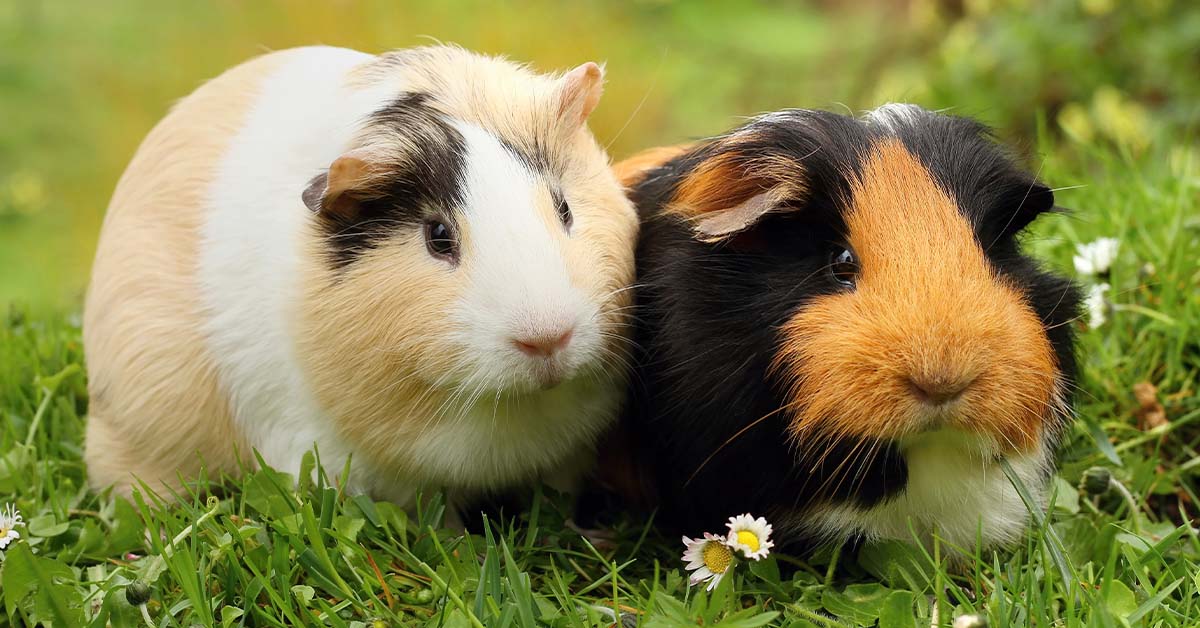
Now that we understand the potential health problems that can arise from a guinea pig not eating let’s explore how long they can go without food. The general rule of thumb is that a guinea pig can go without food for about 24 hours. However, this is not a strict timeline, and it can vary depending on the individual guinea pig’s health and circumstances.
Factors That Affect How Long a Guinea Pig Can Go Without Food
- Age Younger guinea pigs may not be able to go as long without food compared to adult guinea pigs. This is because they have higher energy requirements and need to eat more frequently to support their growth and development.
- Health Status If your guinea pig is already dealing with health issues, they may not be able to go as long without food. For example, if they are recovering from an illness or injury, they may need more frequent meals to support their recovery.
- Environment The environment in which your guinea pig lives can also affect how long they can go without food. If they are kept in a cold or stressful environment, they may need more frequent meals to maintain their body temperature and cope with the stress.
- Diet The type of food your guinea pig eats can also impact how long they can go without food. A diet high in fiber and nutrients will keep them feeling full for longer, while a diet lacking in essential nutrients may leave them feeling hungry sooner.
Signs That Your Guinea Pig Is Not Eating
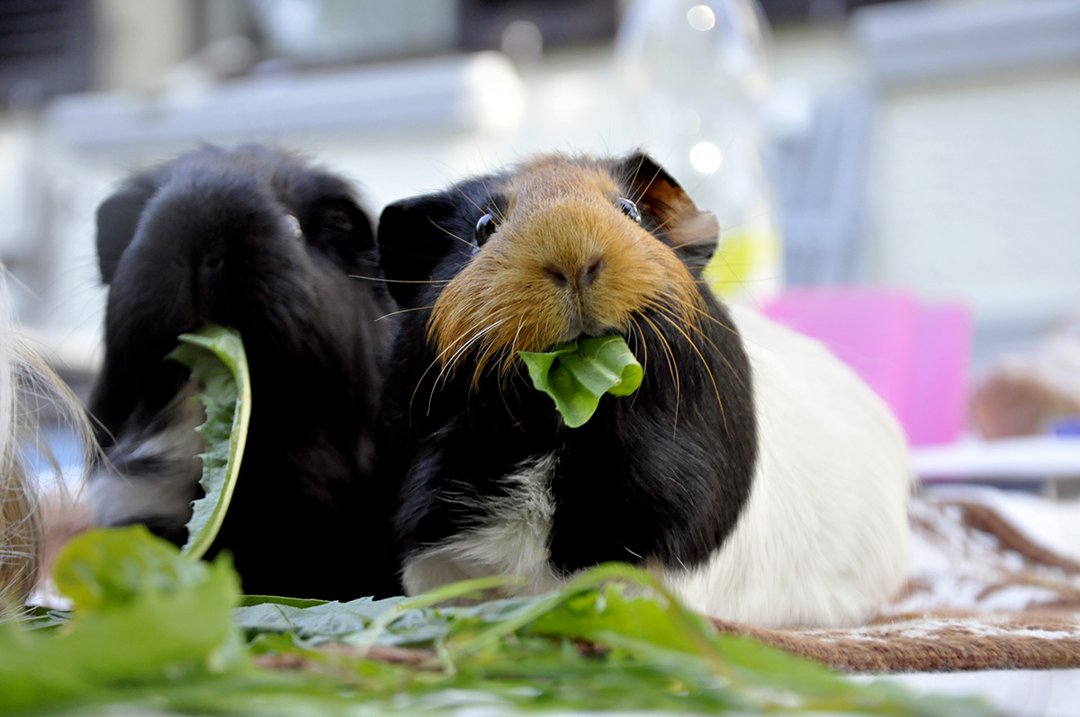
As responsible pet owners, it is crucial to keep an eye out for any signs that your guinea pig is not eating. Catching this issue early can prevent further health complications and ensure that your furry friend stays healthy. Here are some common signs that your guinea pig is not eating:
Weight Loss
Weight loss is one of the first signs that your guinea pig is not eating enough. You can monitor your guinea pig’s weight by weighing them regularly and keeping track of any changes. If you notice a significant drop in weight, it could be a sign that they are not eating enough.
Lethargy
A lack of food can cause your guinea pig to become lethargic and weak. If they seem less active than usual or are spending more time sleeping, it could be a sign that they are not getting enough nutrition.
Diarrhea
Diarrhea is a common symptom of a guinea pig not eating. If you notice that your guinea pig’s stools are loose or watery, it could be a sign of an underlying health issue.
Dehydration
Dehydration is a severe problem for guinea pigs, and it can occur when they are not eating enough. You can check for dehydration by gently pinching the skin on the back of your guinea pig’s neck. If the skin does not snap back into place immediately, it could be a sign of dehydration.
Lack of Interest in Food
If your guinea pig is not eating, they will likely show a lack of interest in their food. They may ignore their food bowl or only pick at their food instead of eating a full meal.
Change in Eating Habits
Lastly, a change in your guinea pig’s eating habits can also indicate that they are not eating enough. For example, if they usually finish their food quickly but now take longer to eat or leave food behind, it could be a sign of a problem.
What to Do If Your Guinea Pig Is Not Eating
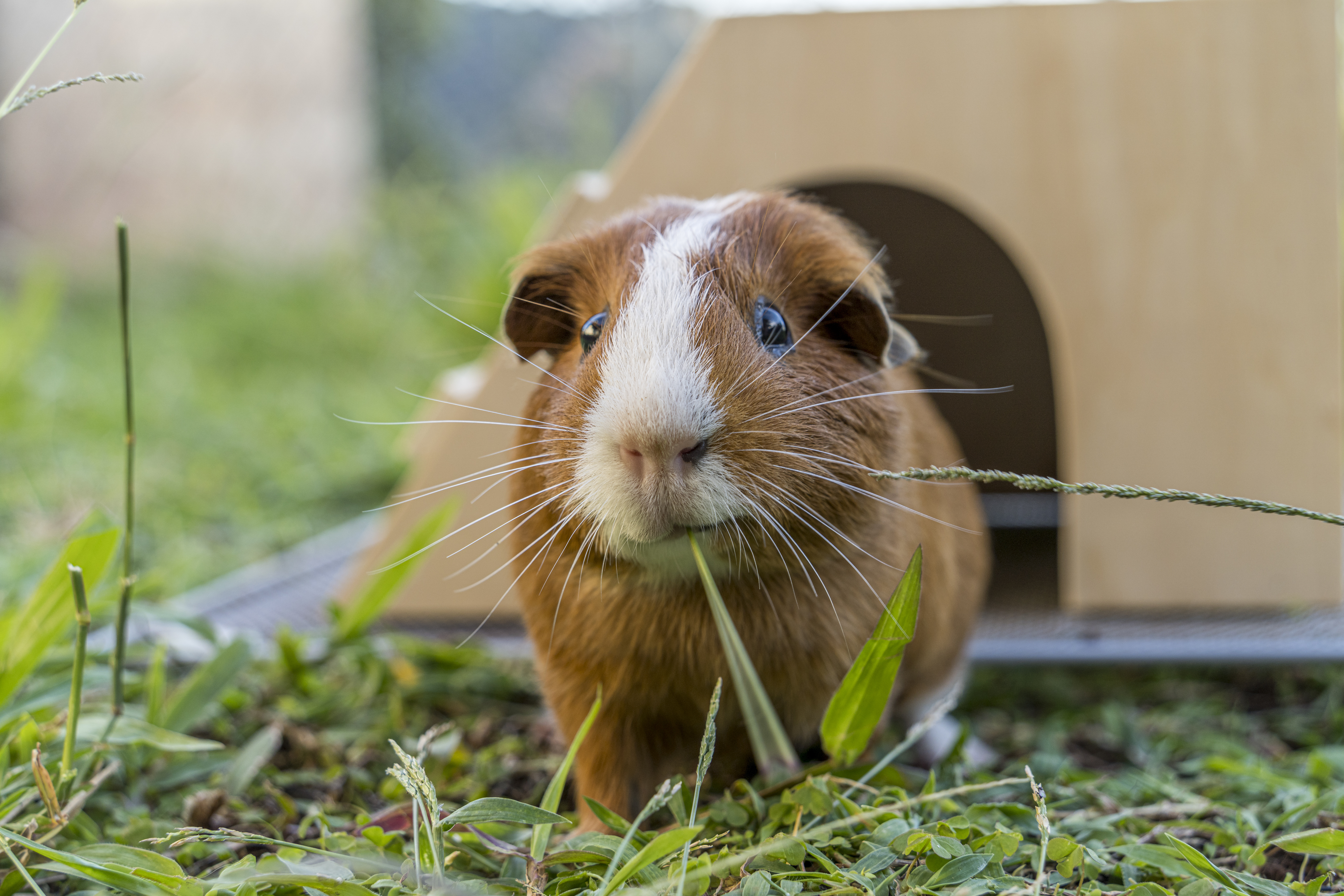
If you notice any of the signs mentioned above or suspect that your guinea pig is not eating, it is crucial to take action immediately. Here are some steps you can take to try to get your guinea pig to eat:
Offer Fresh Hay
Hay is a staple food for guinea pigs, and it should make up the majority of their diet. If your guinea pig is not eating, try offering them fresh hay to see if they will nibble on it. The long fibers in hay can help keep their digestive system healthy and stimulate their appetite.
Provide Fresh Vegetables
Fresh vegetables are another essential part of a guinea pig’s diet. If your guinea pig is not eating their regular food, try offering them a variety of fresh vegetables to see if they will eat them. Some good options include leafy greens, bell peppers, carrots, and cucumbers.
Try Different Foods
If your guinea pig is not interested in their usual food, try offering them different types of food to see if they will eat them. You can try different brands of pellets or offer them some fruits as a treat. Just make sure to introduce new foods gradually to avoid upsetting their digestive system.
Hand Feed Them
Sometimes, guinea pigs may be more willing to eat if you hand-feed them. This can also help you monitor how much they are eating and ensure that they are getting enough nutrition.
Consult with a Vet
If your guinea pig is still not eating despite your best efforts, it is crucial to take them to the vet for a check-up. Your vet can determine the underlying cause of their lack of appetite and provide appropriate treatment.
Conclusion
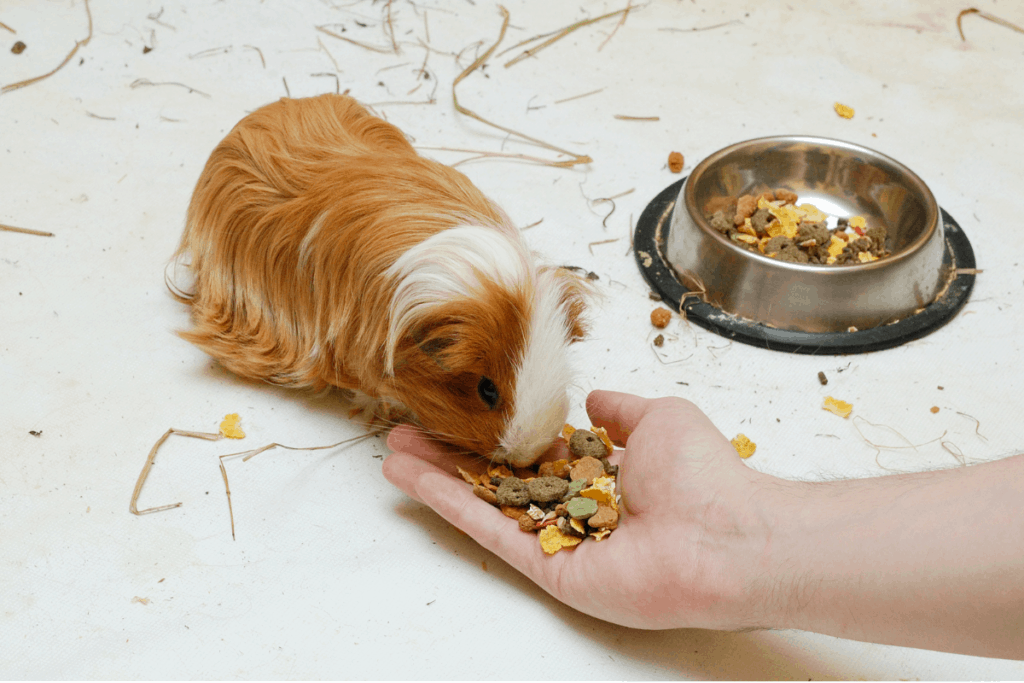
In conclusion, a guinea pig can go without food for about 24 hours, but this can vary depending on various factors such as age, health status, environment, and diet. As pet owners, it is our responsibility to ensure that our guinea pigs have access to food at all times to prevent potential health problems. If you notice any signs that your guinea pig is not eating, it is crucial to take action immediately and consult with a vet if necessary. By providing your guinea pig with a balanced and nutritious diet, you can help them live a happy and healthy life.
